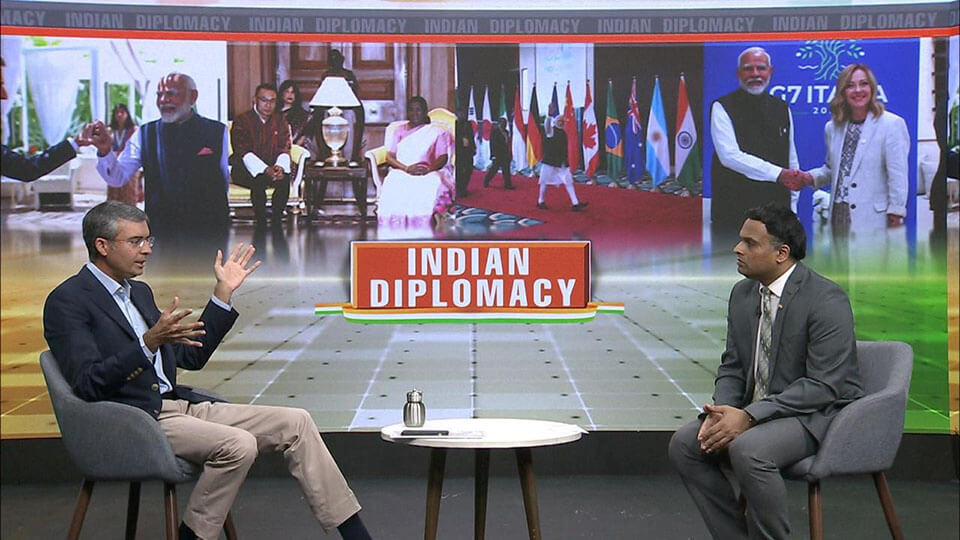Article
Shaping the emerging world
Multipolarity is now irreversible. The normative pillars of this new order will be shaped by the ingenuity and purpose displayed by the Eurasian powers in the coming decades. Unlike the US, they cannot afford to retreat or abdicate.

Article
US, Pak, China The post-Sindoor world calls for a strategic reset
India’s pushback to Pakistan’s provocation in Pahalgam is an inflection point in regional geopolitics. There are big-picture lessons that must be absorbed to reorient Indian statecraft in a rapidly changing international and regional setting.

Article
Just a thaw is not enough, India and China need to turn the page on past
A modus vivendi for at least the next two decades is the prerequisite for Asia’s major powers to collaborate on stabilising, reforming and benefiting from the rapidly changing world setting.

Opinion
Trump's quest for detente with Russia
This is a turning point in a troubled century of US-Russia ties, with only a few previous instances where a similar window for a rapprochement appeared possible.

OPINION
India China detente
India and China have discovered that, despite their bilateral problems, a changing world order offers a fresh opportunity to stabilize their relationship and provide them both with a better hand on the global chessboard of power politics

DISCUSSION
Bangladesh crisis and India’s regional policy
The collapse of the Hasina regime in Bangladesh is a sharp reminder for Delhi to revisit its regional policy and role in stabilizing and securing the neighborhood from radical forces.

NEWS
The deeper message and geopolitics behind the Modi-Putin bonhomie
Modi’s visit has restored the nearly quarter-century-old ritual of annual summitry that had been interrupted since 2020 by Covid and then the Ukraine war in 2022. What is the geopolitical meaning of this summit?

Book
Powershift
Just like seven decades ago, when the dramatic re-emergence of India and China from their traumatic encounter with colonialism followed by a war between them in 1962 transformed this region’s geopolitical landscape, the equation of the two countries is once again poised to influence the future course of Asia.

New Release
Power & Diplomacy
In this critically acclaimed book on India’s diplomatic history, Zorawar Daulet Singh takes us back to the first phase of the Cold War in Asia as India navigated a series of geopolitical crises to eventually emerge as a major regional power in the 1970s.

Opinion
Indian policymakers overread 1962 Chinese threat, could’ve pulled out from the brink
In 'Power Shift', Zorawar Daulet Singh says the 1962 India-China war couldn't be pinned down to one cause. Here he gives a panoramic geopolitical perspective.

Opinion
एशिया का रुतबा लौटाते भारत-चीन
पश्चिमी विचारकों का मानना है कि उभरती हुई ताकतें प्रतिस्पद्र्धा करती ही हैं। और, जब वे पड़ोसी होती हैं, तब तो उनमें शत्रुता की आशंका भी कहीं अधिक होती है। पिछले करीब डेढ़ सौ वर्षों से भारत व उससे पहले के ब्रिटिश भारत और चीन व उससे पहले के छिंग चीन ने पश्चिमी विचारकों को सही साबित किया है।...

From the Author
Zorawar Daulet Singh is an award winning author, historian and foreign affairs analyst based in New Delhi, India. He is a co-founder of the Northcap University, a State Private University, located in Gurugram, Haryana and is also an Adjunct Fellow at the Institute of Chinese Studies, one of the oldest think tanks in New Delhi. He is also a member of the advisory council of the India International Centre (IIC). He was previously a fellow at the Centre for Policy Research. Daulet Singh holds a PhD in international relations from King’s College London.
Power Shift
Just like seven decades ago, when the dramatic re-emergence of India and China from their traumatic encounter with colonialism followed by a war between them in 1962 transformed this region’s geopolitical landscape, the equation of the two countries is once again poised to influence the future course of Asia. Wider interests demand that both countries craft a tenuous co-existence and stabilise a fragmenting world order.
Power & Diplomacy
The notion that a monolithic idea of ‘nonalignment’ shaped India’s foreign policy since its inception is a popular view. In Power and Diplomacy, Zorawar Daulet Singh challenges conventional wisdom by unveiling another layer of India’s strategic culture.






